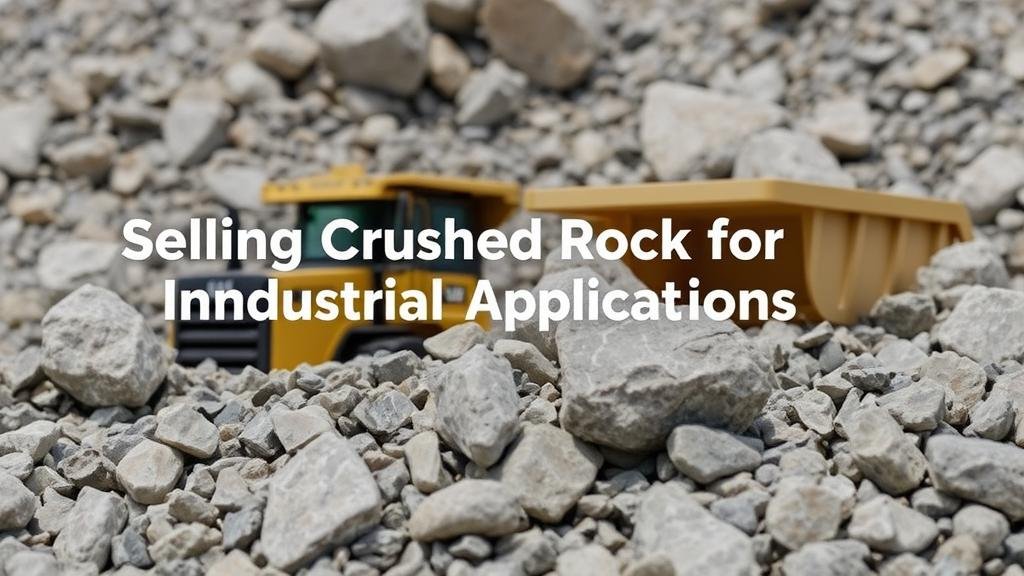Selling Crushed Rock for Industrial Applications: Tips and Opportunities
Selling Crushed Rock for Industrial Applications: Tips and Opportunities
Crushed rock plays a critical role in various industrial applications, including construction, road building, and landscaping. As demand grows for high-quality aggregate materials, there are ample opportunities for businesses to capitalize on this market. This article aims to provide insights into effective selling strategies and the potential opportunities that exist within the crushed rock industry.
Understanding the Market Demand
The increasing urbanization and infrastructural development globally has significantly driven the demand for crushed rock. Reports indicate that the global aggregates market size was valued at approximately $410 billion in 2022 and is projected to reach $635 billion by 2030, growing at a CAGR of around 5.8%. This growth is primarily attributable to rapid construction activities and urbanization in emerging economies.
In particular, crushed rock is indispensable for:
- Construction: Used as a base material in concrete and asphalt.
- Road Building: Essential in the construction of highways and roads.
- Landscaping: Uses crushed rock for decorative purposes and erosion control.
Identifying Target Customers
Understanding who your customers are is vital in effectively selling crushed rock. Common clients include:
- Construction Companies: Firms that require large quantities of materials for building projects.
- Government Agencies: Often involved in public works and infrastructure projects.
- Landscapers: Who use crushed rock for various landscape designs.
By identifying these customers, businesses can tailor their marketing strategies to address specific needs, such as size specifications, type of rock, and delivery schedules.
Establishing Competitive Pricing
Pricing is a critical factor in the competitive marketplace of crushed rock. It is essential to understand the following components of pricing:
- Production Costs: Factors like extraction, processing, and transportation need to be assessed.
- Market Rates: Understanding local market prices can help in setting competitive prices.
- Quality of Material: Higher quality crushed rock may command premium prices.
A comparative analysis of market rates can help in determining an optimal price point that appeals to different buyer segments while still ensuring profitability.
Enhancing Marketing Strategies
Effective marketing strategies can significantly improve your visibility in the market. Consider the following approaches:
- Online Presence: Use websites and social media to showcase your products, including pictures and specifications of your crushed rock.
- Networking: Engage with local construction firms, landscapers, and governmental agencies through industry events, trade shows, and seminars.
- Content Marketing: Writing blogs or articles on the benefits of using crushed rock in industrial applications can establish authority in the field.
By strategically positioning your business through these marketing platforms, you can attract potential clients effectively.
Quality Assurance and Compliance
Maintaining the quality of crushed rock is not just beneficial for reputation but is often mandated by industry standards. Compliance with national and local regulations, such as geological and environmental assessments, is vital. Arguments for strict quality control include:
- Ensuring the safety and durability of construction projects.
- Meeting standards set by regulatory bodies (e.g., ASTM standards for aggregates).
Quality assurance protocols can include routine testing (e.g., gradation analysis, moisture content tests) to ensure the product meets expectations.
Leveraging Technology
In today’s digital age, technology can greatly enhance the efficiency of selling crushed rock. Applications may include:
- Inventory Management Systems: To streamline stock control and management.
- CRM Software: For better customer relationship management and targeted marketing efforts.
- Online Ordering Systems: Allowing customers to place orders easily and track deliveries in real time.
Useing these technologies can improve operational efficiency and enhance customer satisfaction, thereby boosting sales.
Conclusion: Actionable Takeaways
Selling crushed rock for industrial applications presents numerous opportunities in todays expanding market. By understanding market demands, identifying target customers, establishing competitive pricing, enhancing marketing strategies, ensuring quality compliance, and leveraging technology, businesses can successfully navigate this industry.
Start by conducting thorough market research and reach out to potential clients. Consistently evaluate your pricing strategy against the competition and invest in quality assurance processes. Emphasizing a robust online presence can further amplify your market reach, ensuring sustainable growth in the crushed rock business.



